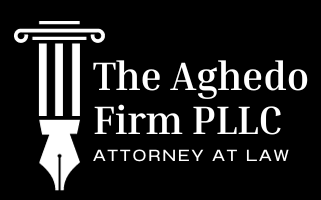CASE RESULTS
When safeguarding your rights, it’s reassuring to have an acclaimed Houston criminal defense attorney by your side.
Introduction:
Two courts recently upended monstrous False Claims Act (FCA) jury awards—one for $663 million and the other for $347 million—concluding that liability was not sufficiently supported by evidence of materiality, based on the Supreme Court’s guidance in Universal Health Services, Inc. v. U.S. ex rel. Escobar, 136 S. Ct. 1989, 2016 BL 192168 (2016). Decisions like these illustrate how significantly Escobar narrows the scope of FCA liability. For companies susceptible to potential whistleblower lawsuits, these decisions underscore touchstones in the new materiality analysis that could end an
FCA claim:

When the government continues paying claims despite knowledge of the claimant's noncompliance with a statutory, regulatory or contractual requirement related to the claim, the continued payments could be strong evidence against materiality (and even scienter).

If the defendant remains eligible for government programs while the suit is pending, the government's view of their reliability as a business partner could affect the materiality evaluation.

Relators must overcome an appearance of immateriality if the government has not intervened in support of their complaint.

A defect in goods or services that does not impact the value, or “primary purpose,” of that good or service is unlikely to be material to the government's decision to pay a claim.

If a good or service is in limited supply, of unique value, or difficult to find, courts may consider the impact of imposing FCA liability on the government's ability to find alternative suppliers.

A defect in goods or services that does not impact the value, or “primary purpose,” of that good or service is unlikely to be material to the government's decision to pay a claim.
Conclusion:
The Harman and Ruckh decisions signal a reluctance to let FCA awards stand when the government continued to pay claims for non-complying goods or services. These opinions rely heavily on Escobar’s guidance that continued payment is “strong evidence” that the alleged noncompliance is immaterial.
In practice, this application of the materiality requirement places a premium on discovery from government agencies that would reveal how the agency has responded to similar instances of noncompliance. It also forces relators to confront the distinction between regulatory noncompliance that wholly defeats the primary purpose of the goods or services and noncompliance with a record-keeping requirement for those goods or services—when they are otherwise of sufficient quality.
Considering these dramatic upsets of jury verdicts after long trials, relators may grow more reluctant to pursue FCA claims where the government has declined to intervene. In the healthcare industry, where the U.S. Supreme Court characterized the statutes and regulations governing the federal healthcare programs as “among the most intricate ever drafted by Congress,” see Schweiker v. Gray Panthers, 453 U.S. 34, 43 (1981), the impact could be greater. In the FCA context, failure to keep up with the myriad record-keeping obligations imposed by these intricate laws and regulations may ultimately be considered immaterial to receiving payment for the services that patients need, so long as the government remains willing to pay for them.
While regulatory compliance should be a priority for any healthcare company, the Escobar materiality standard has proven effective in defending against the ever-expanding theories of whistleblowers.
View Full Bureau of National Affairs Article
START YOUR DEFENSE TODAY
Our team is committed to your best outcome. Contact us for a free consultation
